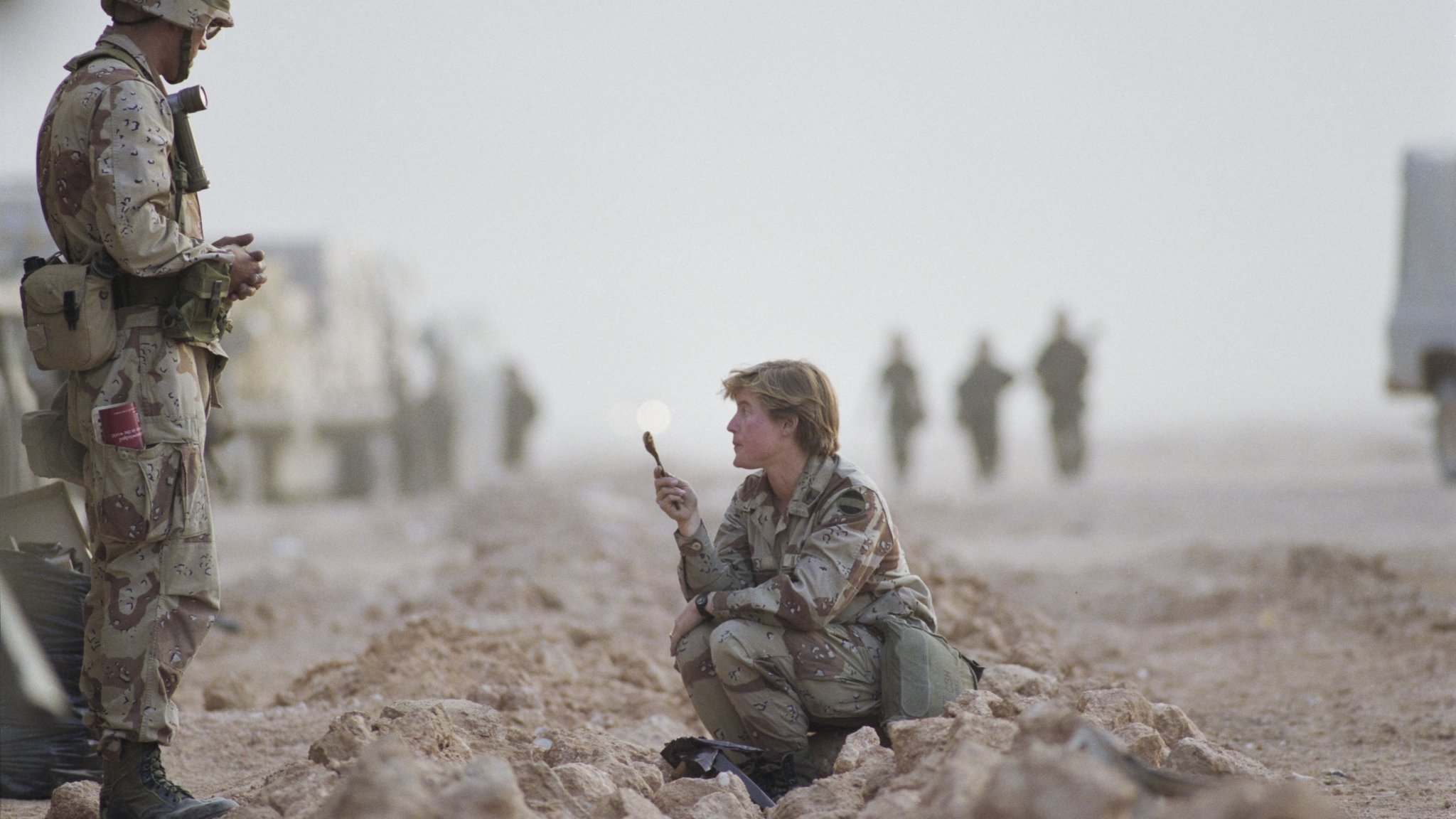
Veterans who have long sought recognition for a medical condition linked to their service in the Gulf War earned a major victory last week with the approval of a medical diagnostic code for “Gulf War Illness.” Photo by David Turnley via Getty
Veterans who have long sought recognition for a medical condition linked to their service in the Gulf War earned a major victory last week.
The Centers for Disease Control and Prevention recently approved a diagnostic code for “Gulf War Illness,” which went into effect on Oct. 1. The code represents a long-sought breakthrough that will allow doctors across the country to diagnose and treat the condition – formal medical validation that has eluded these veterans for more than 30 years.
Gulf War Illness, or GWI, is a chronic, often debilitating condition with several symptoms, including constant fatigue, cognitive issues, chronic pain, respiratory difficulties, skin problems and gastrointestinal distress. Researchers estimate that up to one-third of the roughly 700,000 troops deployed to the Gulf War have GWI.
But as of October, GWI is now recognized in the International Classification of Diseases, or ICD-10-CM, which is managed by CDC.
To put ICD-10-CM’s importance in military or veteran terms, think of it as an Air Force Technical Order, Army Field Manual, or Navy NAVADMIN update, but for doctors who specialize in diseases and illnesses — a final, argument-ending reference book for up-to-date information and procedures that now includes GWI.
“This diagnostic code is very, very important in this field,” said Dr. Kimberly Sullivan, who leads the Boston Biorepository, Recruitment and Integrative Network for GWI at Boston University. “It validates them. It provides acknowledgement as a real medical illness and disorder that is service-related.”
Veterans have reported the symptoms of GWI for decades, but received little formal help or recognition from the broader medical field, leaving many of them frustrated, without needed treatment, and subsequently despondent, doctors who have studied this issue told Task & Purpose on Monday.
Dr. Beatrice Golomb, a professor of medicine at the University of California San Diego, led the successful ICD code submission and told Task & Purpose that a formal code not only gives validation to veterans who have been reporting these symptoms for years, but that it better informs physicians who may not know about the condition, and therefore a formal way to diagnose it.
“These problems are real, and they’re tied to other problems, and they’re due to deployment-related factors,” she said. “Hopefully, the advent of an ICD diagnostic code will lead more physicians to recognize that it is an acknowledged and real condition, and hopefully motivate some of them to look into treatment trials and what has appeared to be helpful for Gulf War veterans to enhance their access to the treatments that have proved favorable.”
Top Stories This Week
Golomb also said that veterans recalled doctors dismissing their symptoms or accusing them of making up their symptoms.
“That phenomenon of people being told it was in their head was deeply distressing,” she said. “The care experiences for Gulf War veterans were terrible.”
Veterans who reported GWI-related symptoms often had them treated by physicians in a piecemeal fashion, tackling some conditions — such as skin or stomach issues — but not as a whole. Now, these symptoms are formally connected under one identified illness, which opens the door for medical practices to integrate GWI into formal systems, such as treatment billing.
Because GWI did not have a formal diagnostic code, doctors were not able to identify, monitor, track or treat patients with the illness “inside and outside the VA healthcare system,” according to Veterans for Common Sense, a non-profit organization.
Researchers and studies consistently link GWI to chemical exposures during the Gulf War, which lasted from 1990 to 1991, and the condition is associated with changes in brain structure, mitochondrial dysfunction, inflammation issues and immune system abnormalities.
“That’s critical that we have this uniform diagnostic code that everyone will be using,” Sullivan said. “If everyone is using the same diagnostic code, it really helps us to understand different studies, for example, so that we’re comparing apples to apples and not apples to oranges.”

Task & Purpose Video
Each week on Tuesdays and Fridays our team will bring you analysis of military tech, tactics, and doctrine.

.jpeg)






















.jpeg)













 English (US) ·
English (US) ·